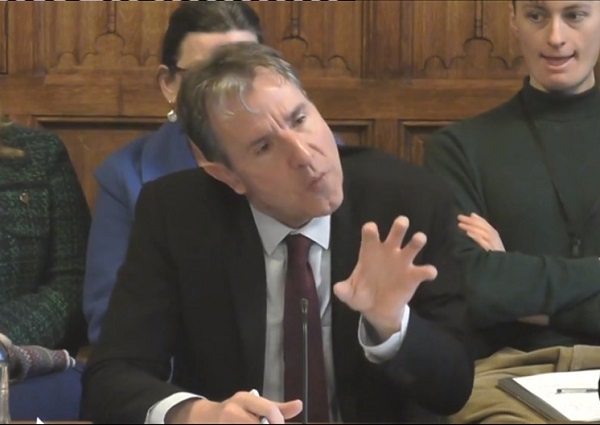THE Severn Estuary’s vast tidal power should be harnessed to help solve the energy crisis, Metro Mayor Dan Norris has told MPs.
Mr Norris, who is in charge of the West of England Combined Authority, said he was working with the Welsh Government to explore the options of energy-generating lagoons in the Bristol Channel.
Giving evidence to the Energy Security and Net Zero Select Committee’s “heating our homes” inquiry in the House of Commons in January, Mr Norris said: “We have the Severn and the Bristol Channel, so we are interested in generating energy from the second highest tidal range.
“We are working with our Welsh Government colleagues in trying to do that.”
In 2022, the Western Gateway cross-border regional development partnership, which brings together local authorities in Wales and the West, set up a commission to look again at getting electricity from the Severn Estuary, five years after a report by former energy minister Charles Hendry recommended a tidal lagoon ‘pathfinder project’.
Heat from mines
Mr Norris also urged the government to help exploit natural underground heat from flooded former coal mines.
He said: “We also have a lot of former mines in the area and we want to get energy out of those pits that have been closed since the 1970s, so we can have heating systems for the public.
“There is a nice irony in that, because since the mining industry contributed so greatly to CO2 emissions, it would be lovely to get something positive about the climate emergency, which is a huge problem and one we can’t roll back on.”
He told the inquiry water in the region’s flooded mines was naturally warm and could be used to heat homes.
South Gloucestershire Council – one of the three unitary authorities that make up WECA – first announced it was investigating how to power homes from disused mines as an alternative to fossil fuels in 2022.
Using heat pumps, the water temperature could be raised to the level required for heating and hot water in homes as well as schools, hospitals and offices, through heat networks.
More government action needed on ‘retrofitting’
Mr Norris also said there needed to be a 25-fold increase in “retrofitting” – making older homes warmer and more energy efficient – claiming that every £1 spent would bring a 40p saving for the NHS.
He said WECA’s £11m Retrofit West service could only scratch the surface in an area where there were thousands of listed buildings.
Mr Norris said: “The Government has been remiss – there has been short-termism, too little long-term thinking, too many poorly-designed initiatives, too focused here in Whitehall.”
By Adam Postans, Local Democracy Reporting Service


